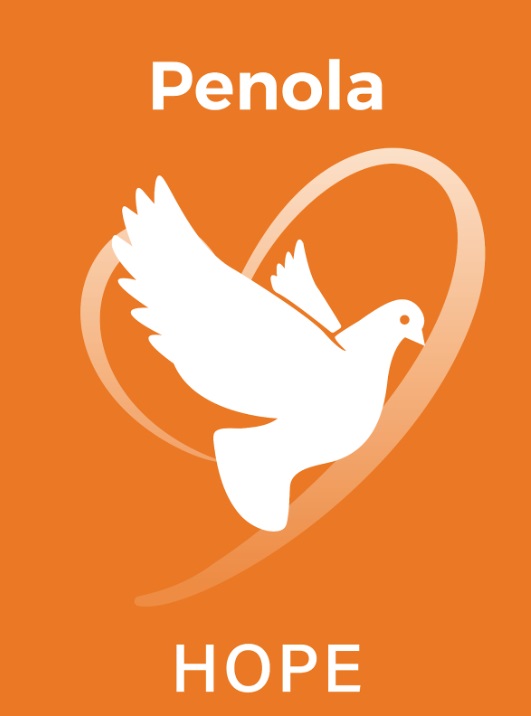
For through the Spirit, by faith, we eagerly wait for the hope of justice
(Galatians 5:5)
Aikenhead House
Feast Day
22 July
Venerable Mary Aikenhead (1787-1892) founded the Sisters of Charity in 1815 in Ireland, who became known as the ‘walking nuns’ visiting the sick in their homes, trying to alleviate the widespread poverty. She opened the first hospital run by religious women in Dublin so that all could have access to medical treatment, regardless of their wealth. In 1838, Mary Aikenhead sent five Sisters to Australia who were the first religious sisters to set foot in this country. The Sisters of Charity missions include both education and healthcare. They remain connected to our Auburn local area through St Joseph’s Hospital which the order founded in 1892, and as teachers when the school now known as St John’s Primary School, was established the next year.
Aikenhead House has as its symbol the scales of justice, reflecting the Church’s teaching that we are born with an inherent human dignity, as we are all created in the image of God. The value of justice recognises our common humanity, as Mary Aikenhead did in choosing to work with the most disadvantaged. We actively live this value at Trinity when we build positive relationships, even, and especially, with those we may not usually be friends with. Her devotion to the service of others reflected in good works travelled across nations over time, to us here at Trinity today. On 22 July we celebrate her feast day and remember her commitment to justice and Venerable Mary’s unshakable belief that “God will provide’.

Do nothing from selfish ambition or conceit, but in humility regard others as better than yourselves
(Philippians 2:3)
Champagnat House
Feast Day
6 June
Champagnat House honours St Marcellin Champagnat (1789-1840), a figure whose story is well-known here at Trinity Catholic College. Distressed that a dying boy that he visited did not know of God’s love for him, the priest founded an order of teaching Brothers who would work to better the lives of children affected by poverty and lack of opportunity beginning in rural France. Inspired by St Marcellin Champagnat’s determination, the Marist Brothers follow Jesus, in the way of Mary and are dedicated to educating and accompanying the most disadvantaged of young people. Today, they are joined in this mission by members of the Association of St Marcellin Champagnat.
At the heart of his Marist mission is the aim to make a difference through humble service and care of young people such as the students of Trinity. In this spirit, Champagnat’s core value is humility, which we strive to embody every day. Our symbol, the violet, whose three petals represent humility, modesty and simplicity blooms prolifically at L’Hermitage, the spiritual home of Marists in France. In our everyday lives, we can practise humility by putting others first, helping without expecting anything in return, and acknowledging the contributions of others in our lives. We honour St Marcellin’s legacy on his feast day on 6 June, when we recommit to living out these principles through our humble service to others, making a positive impact in our communities and beyond. Today, all Marists share the same mission to make Jesus known and loved.

Keep alert, stand firm in your faith, be courageous, be strong
(1 Corinthians 16:13)
Chanel House
Feast Day
28 April
St Peter Chanel (1803-1841) was a Marist priest who was part of the first group of Marist Fathers and Brothers to make what was then, the perilous journey from France to Polynesia in 1836. He settled on Futuna Island in the South Pacific Ocean, learning the language and customs of the local people, whilst preaching the message of the Gospel. Father Chanel was martyred in 1841 by those opposed to his missionary work. St Peter Chanel Girls High was one of three schools which form Trinity Catholic College today, and St Peter Chanel’s story continues its connection to the College with the primary school at Regents Park which bears his name. Today, St Peter Chanel is the patron saint of Oceania.
Chanel House has as its symbol a shield as a tribute to St Peter Chanel, who epitomises the virtue of courage, which is a steadiness when times are difficult and consistency in the pursuit of what is good. Unlike St Peter Chanel, who was martyred, we aren’t all called to face death in light of the faith! We are, however, encouraged to uphold the values of the Church even when faced with opposition. Courage is the willingness to act morally even when it is uncomfortable or unpopular to do so. This establishes a culture of love within the wider school community, exemplified by the heart that surrounds the shield of courage. The celebration of his feast day on 28 April, is a reminder that each one of us is called to share the faith boldly and authentically, drawing others closer to Christ as St Peter Chanel did.

As God’s chosen ones, holy and beloved, clothe yourselves with compassion
(Colossians 3:12)
La Valla House
Acknowledgement Day
23 July
La Valla is the place where the Marist story begins. In this small village in rural France, St Marcellin Champagnat founded the Little Brothers of Mary, known as the Marist Brothers, in 1817. Here the Brothers dedicated themselves to evangelising and educating the youth of the area, quickly expanding to other parts of France and beyond, fulfilling Marcellin’s dream of a worldwide community of Brothers. The charism shared by Marist schools is anchored by five pillars: Presence, Simplicity, Family Spirit, Love of Work and In the Way of Mary. Towards the end of his life, it was St Marcellin’s wish that it could be said of all who work and learn in Marist schools: see how they love one another. Today, the Marist Brothers are a global movement in 79 countries on five continents, continuing St Marcellin Champagnat’s vision of bringing hope to young people.
The theme of La Valla House is compassion which encourages us to embody the virtue of kindness, which is demonstrated by the open hands shown on the crest. We ask yourselves how can we, as members of the Trinity community, practise this value of compassion in daily life. We challenge ourselves to look for opportunities to show others that we care at school, at home and in our community. The celebration date chosen for the La Valla House is 23 July. This date is significant as it was on that day at the foot of the Fourviere Church in Lyon, that St Marcellin and the first brothers made their pledge to place their trust in Mary and carry out their service in her name.

Show yourself in all respects a model of good works, and in your teaching show integrity
(Titus 2:7)
MacKillop House
Feast Day
8 August
Mary MacKillop (1842-1009) began her work as a young teacher providing free education to children, particularly those who would have no opportunity otherwise. Along with Father Tenison Woods, she founded Australia’s first order of nuns, the Sisters of St Joseph of the Sacred Heart. Mary and the Sisters committed themselves to serving the poor and living amongst those in need. This mission took Mary all over Australia to many rural areas. In 2010, Mary became our first Australian saint, known as Mary of the Cross MacKillop. Her words, Never see a need without doing something about it, continue to inspire us today.
Integrity is the MacKillop House value. Integrity is when our values and actions are aligned, even when it is most difficult. We can actively achieve this at Trinity by maintaining respectful relationships with one another, guiding those around us who may be in need of our attention. Through embodying integrity, we are honest, sincere, and consistent in our words and actions, and are able to inspire growth in ourselves, and others, as St Mary MacKillop did. Integrity is represented by the symbol of the compass, reminiscent of the Star of Bethlehem guiding the Magi to the newly born saviour, Jesus. On 8 August we celebrate her feast day and reflect on the lasting impact of her work, of which we are the beneficiaries today.

May the God of hope fill you with all joy and peace in believing, so that you may abound in hope by the power of the Holy Spirit
(Romans 15:13)
Penola House
Acknowledgement Day
19 March
Penola is a special place as it is where Mary Mackillop opened the first St Joseph’s School in a disused stable in 1866. Located in the South Australian Coonawarra region on Pinchunga country, it is the place from where the Josephite Sisters spread, in groups to small outback settlements and large cities around Australia, New Zealand, and beyond. The story of Penola reflects Jesus’ teaching in the parable of the mustard seed: the seed grew and became like a tree, so that the birds built their nests in its branches (Luke 13:19).
Penola is the embodiment of our value, hope. When we work towards a goal, for example, study, service or sport, the lasting legacy of Penola allows us to embrace the process rather than the outcome, knowing that the Holy Spirit, symbolised by the dove, allows us to face our difficulties with an open heart and mind. Penola is not just a place; it is a beacon of hope that guides us through even the darkest of times. It reminds us that no matter how daunting challenges may seem, we can always find hope in our faith and the guidance of the Holy Spirit. Our house celebration will mark the feast of St Joseph on the 19 March, the day the first humble school opened. It reminds us that no matter how daunting challenges may seem, we can always find hope in our faith and the guidance of the Holy Spirit. We are thus called to be a source of hope, inspiring others to do the same. Penola continues to remind us that from humble beginnings, great things grow.
